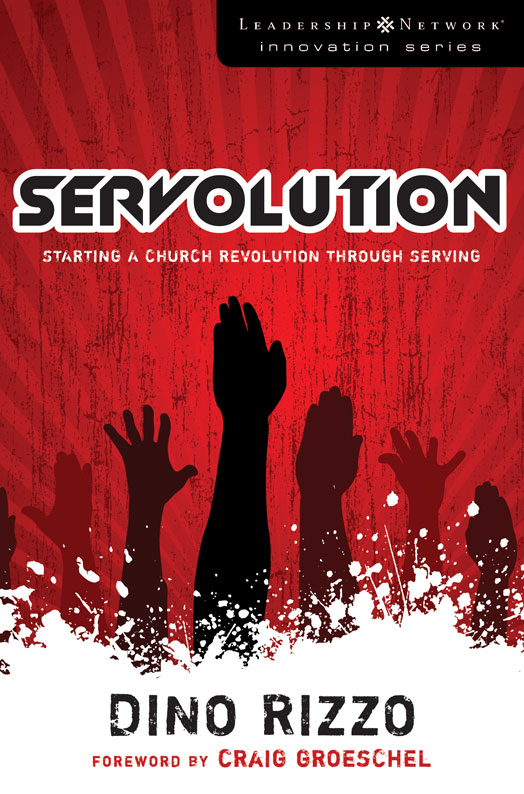 Having reviewed Dino Rizzo’s book Servolution, it’s clear that there are a number of lessons for church marketers that can be drawn from it’s pages. I just want to highlight four specifics.
Having reviewed Dino Rizzo’s book Servolution, it’s clear that there are a number of lessons for church marketers that can be drawn from it’s pages. I just want to highlight four specifics.
1. Who would miss your church?
“A questions I am always asking myself is, If HPC closed down tomorrow, who would notice?”
While advertising, street signs and a full garage on a Sunday are great signs of success for a church, they aren’t necessarily indications of a great impact on your community. As Rizzo points out, a billboard may mean that your community knows the name of your church, but does it mean any more than that?
The ultimate test would be this: if your church closed, would anyone notice? Other than the regulars, who would shed a tear for a moment and then go somewhere else? Would the neighbors, local police, community leaders and schools even notice if you disappeared? Now think, what would change that–another advertisement or visiting the sick and staffing an after school club? That’s the point of Servolution, to be more than a building in a community but a church that exists in the whole of the community.
2. Care for your volunteers
There must be nothing worse than getting tired of caring for people. But it can happen, and when dealing with volunteers it’s vital to take care of them.
It’s similar in business, your staff are your most important asset. Look after and care for your staff, and they will do a good job and be happy to work for you. Ignore them or make them feel undervalued and they won’t be as attentive to your customers and your reputation will quickly take a turn for the worse.
Rizzo makes a point of showing that volunteers need caring for too. They can’t be expected to work tirelessly without rest and food, whatever the situation. For example:
- People who have been involved in setting up for an event should be allowed some time off before they have to work as greeters or serve the public.
- Acknowledge that people have different gifts. Don’t expect a great cook to be great at serving the meal too. Work to people’s strengths.
Are you caring properly for the needs of your staff? Do they feel valued for their individual contribution?
3. To God be the glory-–not you or your church
Serving is about growing the kingdom, not your church. As soon as you start seeking the credit for your church, or yourself, your service becomes hollow.
Pride can creep up almost unnoticed, and don’t think that you’re exempt, it can happen to anyone. Dino Rizzo fought with this issue after Healing Place Church received a mention in the President’s State of the Union address.
To exercise this discipline, HPC will partner with other churches in their events without even seeking name credit. They are just happy to be serving people at the point of their need. Doing this has resulted in them being invited to partner in bigger and more public events and given great public relations.
What’s your motivation? Are you looking for personal glory and your own church, or are you working for the growth of the kingdom?
4. Manage and measure
Some of the activities Healing Place Church were involved in during the early years have ceased to exist. Not out of a lack of will, just that they were no longer required of the skills needed to provide a good service had disappeared. In Servolution, Rizzo encourages us that some services are just for a season, so we shouldn’t be afraid to cut them-–it’s not a sign of failure, just good management of resources.
Servolution makes a good case for management of resources. It’s a waste putting effort into one unwanted project when those resources could be better used elsewhere. HPC has had to deal with the management of services on a local and national level, and through the story of these events, Rizzo shows the importance of communication.
Are you doing things out of tradition? Is it time you reviewed your activities and redistributed resources?




Duncan Robinson
June 26, 2009
The people that we are renting from go to Dino’s church. They are sending me a copy of this book, I am really excited to read it, it sounds really good.
Phil
June 26, 2009
Duncan, it’s a book I was really excited by. I sometimes think it understates the power of God in all that takes place (I don’t think human action is all it takes) but I can’t disagree with the fact that we should be taking more interest in our communities and that this can bring about a great change.